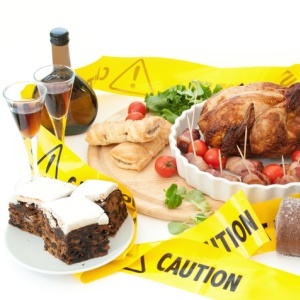
Listeria has claimed five lives in the Western Cape, which is in the grips of a relentless drought, making the fight against the foodborne disease ever more challenging, as experts scramble to find the source of the deadly infection.
South Africans have been warned of the Listeria outbreak following an unusually high number of cases first identified in Gauteng.
Mainly a foodborne disease
The country usually records 60-80 cases a year; however 71 cases had been detected in the Western Cape by November.
Of the 71 cases, the National Institute for Communicable Diseases told Health24 that it has outcome information on only 21 cases, in which it was reported that three adults and two newborns had died.
The deaths on record show that four occurred in City of Cape Town Metropolitan Municipality between August and November, with one death in the Overberg district in October.
Listeriosis is associated with eating a wide variety of foods contaminated with Listeria monocytogenes, including dairy products, fresh vegetables and fruit, as well as ready-to-eat products.
“Listeria is mainly transmitted to humans as a foodborne disease, but the presence of Listeria in water increases the risk that it will transfer to food,” said Dr Jo Barnes, emeritus senior lecturer at Stellenbosch University's faculty of medicine and health sciences.
“You have to wash most food and cooking utensils when preparing food. Many food items, such as vegetables and fruit are washed before packaging for selling, and last but not least, you have to wash the kitchen surfaces and eating utensils before and after eating.”
She explained that all these hygiene actions mean that Listeria can readily transfer from water to food all the way from the point where the food is produced, to where it is marketed and up to when the food arrives on the dinner table.
Making food safer
“This is the reason why – in times of such severe water restrictions as we have in the Western Cape at present – the risk of Listeria infection increases,” said Dr Barnes.
She added that if basic home hygiene and sanitation are being compromised, the risk of many other infections will also increase.
Many of the preventative measures brought to the attention of the general public involves cleaning with water. A focus has been placed on promoting the five keys to safer food:
1. Practise cleanliness
2. Prepare and keep raw and cooked foods separately
3. Cook foods thoroughly
4. Keep food at safe temperatures
5. Use safe water and raw materials
“We are severely restricted in how much water we can use at the moment, so some of those measures simply cannot be carried out properly by the general public in the areas with level six water restrictions,” Dr Barnes said.
She explained that although Listeria doesn’t kill every person who gets infected, there is a much higher risk of it causing serious disease or even death in persons who have immune systems that are under pressure. These would include people with chronic diseases such as TB or HIV/Aids or those who are malnourished, pregnant mothers, the young or the elderly.
“These high risk groups form a significant proportion of our population, so one cannot just assume that a large percentage of the population has no reason for concern,” said Dr Barnes.
On-going efforts to find the source
Professor Mark Nicol, clinical microbiologist and head of UCT's medical microbiology division, said the drought and its impact on Listeria in the province is unlikely to be an issue.
“This is a national outbreak and most cases have occurred in Gauteng. There are other infections, caused by different bacteria and viruses, which may have increased as a result of the drought.”
The NICD said since the announcement of the outbreak, every province has mobilised their provincial outbreak response team structures in support of the national outbreak activities.
This was confirmed by the Western Cape’s spokesperson on health Mark van der Heever, who added that health workers have also been put on alert to look out for possible cases when clients present with Listeria symptoms during screening.
Efforts to identify the source of the outbreak are on-going.
The investigation includes various directorates with the National Department of Health, as well as assistance from the Department of Trade and Industry, and the Department for Agriculture, Forestry and Fisheries, and a number of other private sector organisations who have been sharing information.
Image credit: iStock




 Publications
Publications
 Partners
Partners











